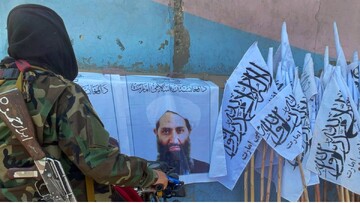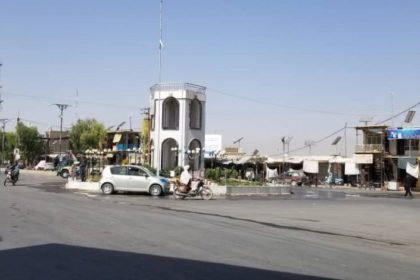RASC News Agency: Credible sources reveal that Taliban leader Hibatullah Akhundzada has appointed more than 150 of his close associates to prominent positions within the past year under the pretext of “reforms.” These moves, analysts suggest, are aimed at solidifying and extending his influence across key governmental and military structures. Notably, one-third of these appointments have been concentrated in Afghanistan’s southern provinces. Hibatullah has also reshuffled a significant number of top officials, including ministers, deputy ministers, and senior military commanders.
Sources indicate that the Taliban leader has promoted numerous individuals from junior roles to ministerial, provincial, and senior military positions, often prioritizing loyalty over competence. Simultaneously, Hibatullah has strategically demoted several high-ranking officials in the southern provinces to subordinate roles, ostensibly to address internal rivalries and consolidate his authority. These appointments, largely driven by personal connections rather than professional merit, have drawn criticism even within Taliban ranks. For example, in January 2024, Hibatullah reassigned 28 personnel within the Ministry of Defense. February saw 12 additional appointments across various Taliban-controlled institutions, while May witnessed 15 more changes in governmental departments.
Notable reshuffles include the replacement of Qalandar Ebad with Noor Jalal Jalali as the Taliban’s Minister of Public Health. Previously, Jalali served as the deputy minister in the Taliban’s Ministry of Interior. Similarly, Mohammad Sadiq Inqilabi, the district governor of Greshk in Helmand, was elevated to the post of deputy governor of Kandahar. In turn, Hayatullah Mubarak, former deputy governor of Kandahar, was reassigned as the district governor of Greshk. These cabinet reshuffles in June and July sparked a wave of discontent among Taliban supporters, who took to social media to criticize Hibatullah for neglecting professional standards, fairness, and equity in his appointments. For instance, in June, Mohammad Wazir, the head of the budget department in the Ministry of Interior, was reassigned as the director of disaster management in Ghazni. In July, Hedayatullah Badri was removed from his position as governor of Afghanistan’s central bank and appointed as Minister of Mines and Petroleum.
Hibatullah also carried out significant changes within the Ministry of Defense in July, granting high-ranking roles to individuals from the southern provinces. Among these was Abdullah Basheer, the former district governor of Spin Boldak in Kandahar, who was appointed Deputy Minister of Technology and Logistics in the Ministry of Defense. In recent months, Hibatullah has expanded this pattern of reshuffling by appointing loyalists to critical roles in provinces, ministries, and other key institutions. He also relocated the office of Taliban spokesperson Zabihullah Mujahid to Kandahar. Similarly, Amir Khan Muttaqi, the Taliban’s Foreign Minister, has established an office in Kandahar, where he regularly meets with international delegations.
In a further consolidation of power, sources report that Hibatullah has formed an elite special force comprising several thousand members. This unit operates independently of the Taliban’s Defense and Interior Ministries and receives millions of kabuli rupees monthly to cover salaries and operational costs. Hibatullah’s centralization of power and preferential appointments continue to fuel internal discord and raise concerns over the Taliban’s governance structure, with critics highlighting the prioritization of loyalty over the broader welfare of Afghanistan.






